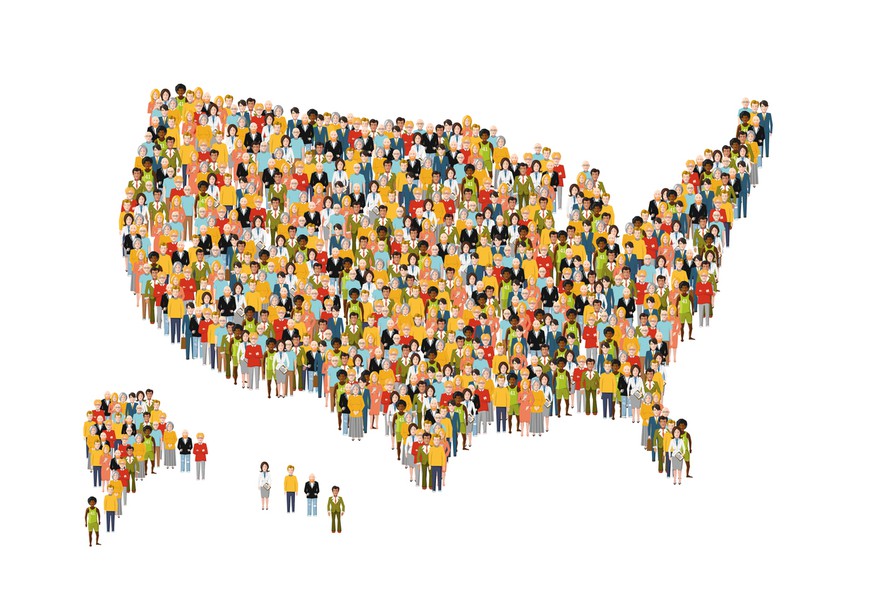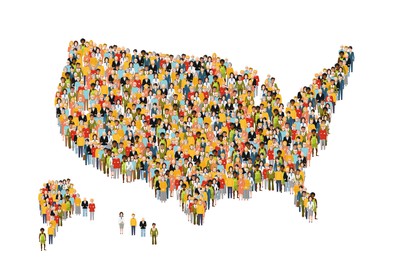

US online poker is on the cusp of considerable growth, now that Pennsylvania has started the process for offering multi-state poker.
Earlier this month, Governor Josh Shapiro asked the Pennsylvania Gaming Control Board (PGCB) to start negotiations for the state’s membership in the Multi-State Internet Gaming Agreement (MSIGA), a compact that supports online poker. And just this week, the Pennsylvania Gaming Control Board ratified a motion to formally being the process of joining MISGA.
Under MSIGA, operators licensed in the member states can combine their player pools, creating shared liquidity. This not only allows players from different states the opportunity to play against each other, but it creates bigger prizes and more excitement for online poker. States also benefit from increased tax revenue and fewer players being drawn to illegal offshore sites.
But just how big is MSIGA? And how big will it be once Pennsylvania joins? This article looks at how the compact is structured now and what it will look like once the Keystone State becomes a member.
States Sharing Best Practices, Raising Revenue
MSIGA currently includes five member states — Delaware, Michigan, Nevada, New Jersey, and West Virginia – Pennsylvania will be the sixth member of MSIGA.
From its inception, MSIGA has served as an agreement between states with well-established igaming regimes focused on best practices. The states work together to ensure high standards for security and gaming integrity, and to promote competition — while also benefiting from the additional tax revenue that the additional shared liquidity brings.
The states work to align themselves on regulatory matters. For example, before Michigan joined it asked the other states to insert verbiage on minimum standards for operators.
There is no timeline for Pennsylvania’s membership in MSIGA, but the process is expected to take at least a few months. Pennsylvania is applying for membership and the other five members must agree.
In Michigan, online poker operators needed clearance from the Michigan Gaming Control Board (MGCB) before they could launch multi-state poker, but the PGCB has no such requirement — meaning operators in the Keystone State should be able to combine their player pools immediately upon Pennsylvania’s entry into the compact.
Compact Will Grow 51% With PA Aboard
MSIGA will get much bigger once Pennsylvania online poker is added — 51% bigger to be precise. The compact will include six states whose population collectively is 38.3 million.
The five current members of the compact have a combined population of 25.3 million. Michigan is the compact’s largest member with 10 million residents, followed by New Jersey (9.3 million), Nevada (3.2 million), West Virginia (1.8 million), and Delaware (1 million).
Pennsylvania has 13 million residents, which means it will be MSIGA’s largest member when it joins. Only four states (California, Texas, Florida, and New York) have more people, but it will likely be many years before any of them offer regulated real money online poker — hence, adding the Keystone State to MSIGA is expected to transform the US online poker space.
The compact started a decade ago as an agreement between Delaware and Nevada. New Jersey became MSIGA’s third member in 2017, followed by Michigan joining the group in May 2022.
West Virginia was the most recent state to join the compact, doing so in November 2023. Despite the state’s entry into the compact there are still no operators there — likely because of the small size of the market.
At this stage the only other state that could join MSIGA without changing its gaming laws first would be Rhode Island — but Rhode Island joining would have the same effect as West Virginia. That’s because Bally’s holds a monopoly on igaming in the state but doesn’t offer online poker.
Online poker is legal in neighboring Connecticut but state law expressly prohibits shared liquidity, so it wouldn’t be able to join the compact without changing the law first. That said, there is no pressure for state lawmakers to take such a step since there aren’t any real money online poker operators active in Connecticut, either.
North of the border, the Canadian province of Ontario is also a segregated market, with 16.1 million residents.
MSIGA is Small By European Standards
Online poker is legal in jurisdictions around the world. In the countries where online poker is legal, most at a minimum require that platforms be licensed by gaming authorities in another jurisdiction. Other jurisdictions like the UK require direct licensure of online poker platforms.
Europe used to have open shared liquidity — players from countries throughout Europe could play against each other. But that started to change when lawmakers in several European states began to worry about losing tax revenue to other states.
Lawmakers in Italy passed legislation to begin regulating (and, more importantly, taxing) online poker in 2007. Italy also decided to ring-fence its online poker market at the time, but with multiple operators licensed by Italian regulators.
France and Spain passed similar legislation shortly thereafter; France established a segregated market for online poker in 2010, followed by Spain in 2011. Online poker began as a ring-fenced market in Portugal in November 2016.
Unfortunately for the four European states, when they created ring-fenced markets they also shut off a large number of potential players. Traffic on the sites subsequently declined.
Recognizing that online poker needed a boost, Italian regulators suggested the framework for a shared liquidity agreement to their counterparts in France, Portugal, and Spain. The four signed an agreement on July 6, 2017 — but only France, Portugal, and Spain have implemented it.
Italy is reportedly reluctant to follow through with its commitment to join the European compact in part due to Anti-Money Laundering (AML) concerns.
Unlike MSIGA, the agreement in Europe doesn’t have a formal name, although regulators in Spain and France have referred to it as the Online Poker Shared Liquidity Agreement. It has also been dubbed the European Market and the Europool.
MSIGA is small by European standards. France has a population of about 68.5 million people, while Spain has 48.8 million and Portugal has 10.6 million. Combined, the three countries have a population of 127.9 million — which means MSIGA (with Pennsylvania included) amounts to 30% of the European Market.
Italy has 59 million citizens, so MSIGA would equate to 65% of the Italian market.
How the Multi-State Internet Agreement Stacks Up
| Market | Member States | Population |
|---|---|---|
| Europe [1] | France, Portugal, and Spain | 127.9 million |
| Italy | 59 million | |
| MSIGA | DE, MI, NJ, NV, PA [2], WV | 38.3 million |
| Ontario | 16.1 million |
Note: [1] Signed and implemented the Online Poker Shared Liquidity Agreement of July 2017. [2] Pennsylvania is in negotiations but there is no timetable for it to become an official member of MSIGA.

